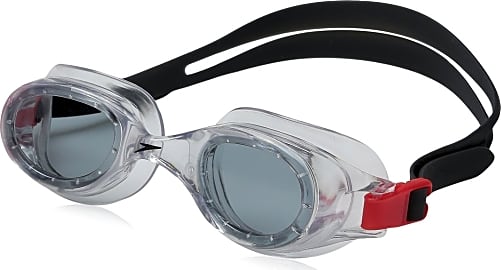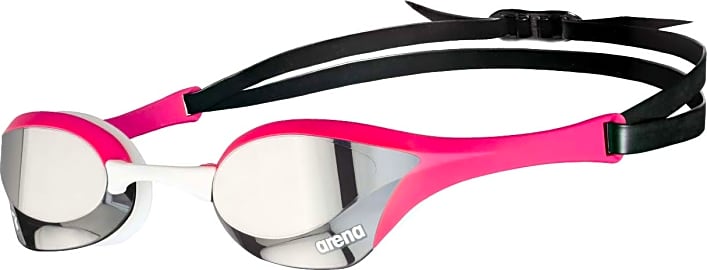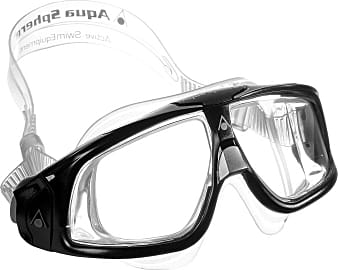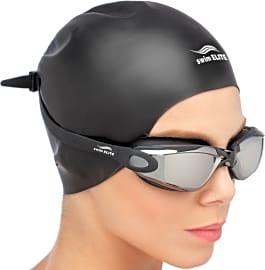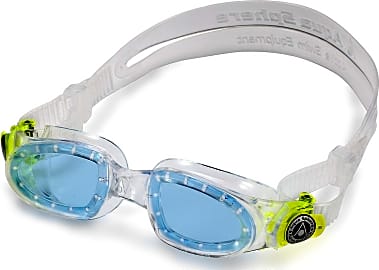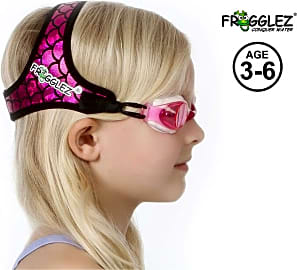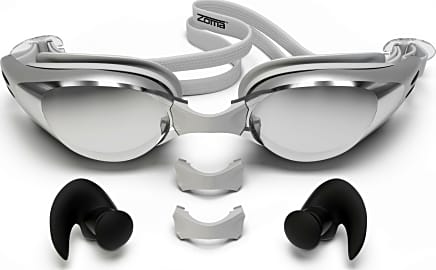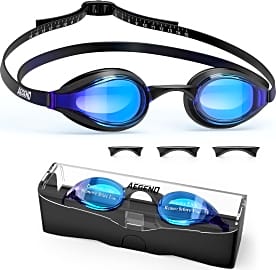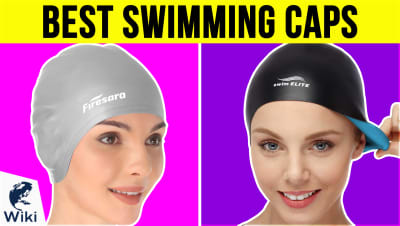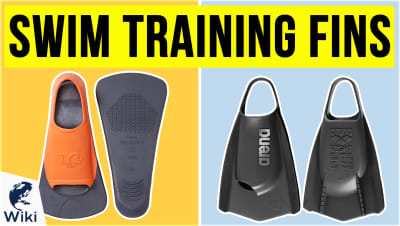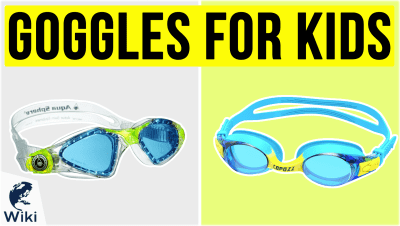The 10 Best Swim Goggles

This wiki has been updated 41 times since it was first published in March of 2015. Take the plunge without risking damage to your eyes from either pool chemicals or debris in the ocean. Whether you are a competitive or recreational swimmer, our selection will help you find the perfect pair of swim goggles for everyday athletic use or the occasional outing with friends and family. We've picked those that will work for a variety of face sizes and shapes, including some for kids. When users buy our independently chosen editorial recommendations, we may earn commissions to help fund the Wiki.
Editor's Notes
December 12, 2019:
Fans of the brand will not be surprised to see the Aqua Sphere Kayenne and the Aqua Sphere Seal 2.0 here, as this Italian company is known for producing high-quality products. With that said, the Seal 2.0 doesn't fit all faces equally well, so there can be occasional issues with water leaking in. And speaking of fit, we opted to remove the Aguaphile Mirrored, which have a design that is simply too wide for most people. We still like the fairly similar Swim Elite Exclusive, however, especially since these are bundled with a handy swimming cap. As for new additions, we've selected the Roka F1, which are sleek and low-profile, the perfect choice for those who don't want a lot of bulk. We chose the new TPR version of the Aegend Triathlon, as well, which offer good quality for the price but may not fit very big faces.
As for options for kids, we kept the Aqua Sphere Moby Kid and added the Frogglez Explorerz Jr. The latter comes in several sizes and has a unique removable strap that many children find more comfortable than standard designs.
Special Honors
Form Swim Goggles With today's technology, it was only a matter of time before someone created a pair of smart goggles. These Form Swim Goggles are exactly that, featuring a smart display that shows you crucial metrics but without obstructing your vision. formswim.com
Aquagoggles V2 If you have vision troubles, but don't wear contacts, you can still swim confidently with the Aquagoggles V2. There are versions for both nearsighted and farsighted prescriptions, and they are surprisingly affordable given the fact that they are customized. aquagoggles.com
Speedo Fastskin LZR Pure Focus When speed is crucial, the Speedo Fastskin LZR Pure Focus are the way to go. They stay in place during flipturns and won't leak, so you can focus on your mechanics and technique, rather than on keeping water out of your eyes. speedousa.com
Swim Goggles: More Than Water Protection
If they don't come with this coating, you can purchase a spray that produces the same effect.
Your eyes are two of the most sensitive parts of your body and should be treated with care. That's why swim goggles are so important whether you are a competitive swimmer or simply swim for exercise and fun.
Swim goggles do more than protect your eyes from water irritation. They also protect them from chemicals in pools such as chlorine, and they protect them from debris during ocean or freshwater swimming.
The right set of swim goggles will enhance your visibility under water and adjust to fit your head. They won't leak, will withstand pressure, and will have a corresponding nose piece that doesn't cause discomfort. Most goggles are made of a combination of plastic and rubber and have lenses that promote 180-degree visibility.
Some current swim goggles are equipped with a fog resistant coating that keeps your vision from becoming blurry after extended use. If they don't come with this coating, you can purchase a spray that produces the same effect. They are generally made with scratch resistant lenses and protect from harmful UV rays. This is especially helpful if you frequently swim outdoors.
Some goggles are even compatible with prescription eye-wear so you don't have to choose between swimming and seeing. With some companies, you might even have the option of purchasing goggles fitted with your specific prescription lenses.
Many current swim goggle designs are patterned after Swedish goggles that are popular among many competitive swimmers. The difference between Swedish goggles and the average swim goggles on the market is that Swedish goggles must be fully assembled by the user for a customized fit.
How To Choose The Right Swim Goggles
When choosing a pair of swim goggles, they should be comfortable but not too comfortable. They should fit snugly to prevent leaks without causing pain. The strap should fit tightly around your head and not slip while you are in motion. When putting on the goggles, the strap should not be placed above eye level or you will feel the water splash against the strap. It can be distracting and uncomfortable while swimming.
They might feel fine when you first put them on, but swimming with them might feel entirely different.
Test out your goggles before using them in a competition or taking them on your next vacation. They might feel fine when you first put them on, but swimming with them might feel entirely different. Take a few practice laps before settling. It's especially helpful if you can try on the goggles before purchasing them.
Make sure the swim goggles you choose are adjustable. If you can't adjust the strap or nose piece, you are likely to run into issues with leaking and discomfort. Sometimes you will find goggles with an adjustable strap but without an adjustable nose piece. This can be an issue for anyone with a smaller or larger than average face. It is especially important for children to have adjustable goggles.
If you do most of your swimming outdoors, consider a pair of mirrored goggles. They have a dark tint and UV protection to reflect unnecessary light and enhance your visibility. They are generally durable, but they scratch easily. They do require more care and maintenance than the average pair of swim goggles, but they are especially helpful for swimmers with eye conditions such as glaucoma.
Make sure that the swim goggles you choose are durable. Some have straps or nose pieces that break easily. Even if your chosen pair is perfect and long-lasting, it's a good idea to have a back up pair on hand in case something happens before or during your swim.
A Brief History of Swim Goggles
It appears that the first version of swimming goggles was invented by the Persians in the fourteenth century. They needed a way to protect their eyes when diving for pearls, so they used polished tortoise shells.
Three centuries later, Guy Gilpatrick, an American pilot, wanted a way to protect his eyes from the irritation caused by salt water. He used his own version of swim goggles when he went diving in the ocean.
In the eighteenth century, Polynesians began putting glass lenses into goggles. They attempted to use them during skin diving competitions, but they were unsuccessful. The glass made the goggles too heavy and caused them to fall off during dives.
Swimming goggles are now as much a part of the competitive swimmer's uniform as the swimcap and swimsuit.
In 1911, Tomas Burgess, an English competitive swimmer, used motorcycle goggles to swim across the English Channel. They worked well to protect his eyes from salt water irritation. Soon after that in 1916, C.P. Troppman patented official swimming goggles. Unfortunately, this invention was unsuccessful because the goggles slipped around the head and often leaked.
In 1936, Walter Farrell patented swimming goggles specifically for underwater use. He based his goggle designs on the wooden ones the Polynesians had invented in the eighteenth century. He added rubber seals to make them waterproof, and they soared in popularity among open water swimmers.
In 1968, a new version of goggle was invented and marketed to swimmers. Unfortunately, they turned out to be nearly as impractical as previous models. They were banned from competition for the first two years they were on the market. Finally, David Wilkie was the first to wear them in a swimming competition.
Swimming goggles are now as much a part of the competitive swimmer's uniform as the swimcap and swimsuit. Fortunately, after much trial and error, high quality swim goggles are available to the general public that have proven themselves to be both comfortable, practical, and waterproof.


